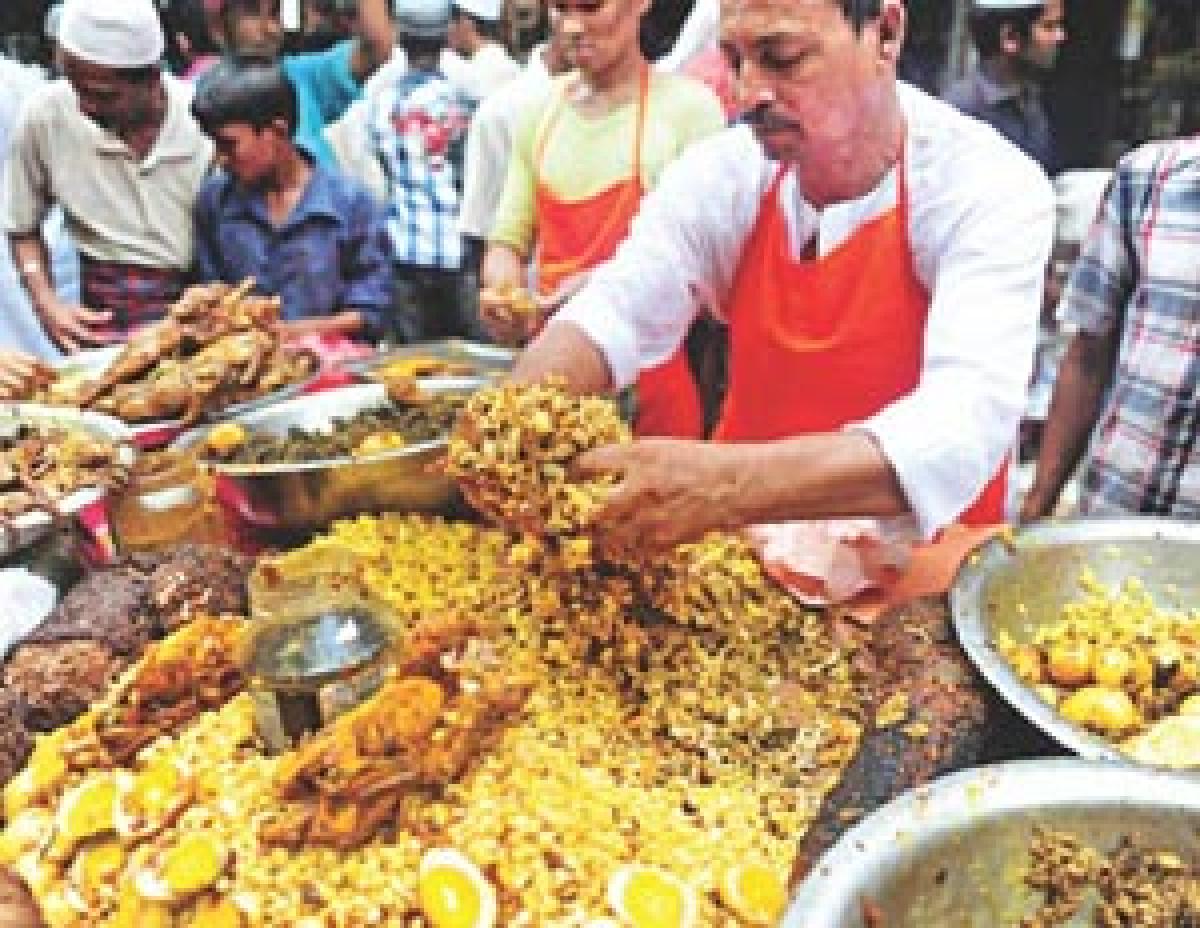Live
- GMR Airports Unveils AI-Powered Digital Twin Platform to Transform Airport Operations
- India poised to become leading maritime player: PM Modi
- Top Causes of Kidney Stones and How to Recognize Silent Symptoms
- India’s renewable energy capacity logs 14.2 pc growth at 213.7 GW
- Winter Session of Odisha Assembly adjourned sine die
- Biden calls Trump's tariff approach 'major mistake'
- After Drama Over Eknath Shinde’s Chief Minister Race, Maharashtra Cabinet Formation Faces New Tensions
- Egyptian FM, Blinken discuss recent developments in Syria
- Iran's supreme leader says Syria's developments result of US-Israeli 'plot'
- Elon Musk to Purchase $100 Million Luxury Mansion Next to Donald Trump's Mar-a-Lago, Report Reveals
Just In

Modern living standards have brought many comforts in our life but some of these are turning to be quite dangerous. The increase in various types of pollution and contamination is perhaps the most crucial aspect that has affected our life.
Modern living standards have brought many comforts in our life but some of these are turning to be quite dangerous. The increase in various types of pollution and contamination is perhaps the most crucial aspect that has affected our life. Undeniably, a fall-out of this is that diseases have been increasing whereby some of these are thanks to our modern lifestyles including our food habits.
An example, take our food. Shockingly, various types of unhealthy chemicals are mixed and these go unchecked. Whereby, contaminated vegetables and fruits are sold openly in the market as there is no system in the country of checking the quality of products sold.
Worse, according to an Agriculture Ministry report released in October last year, there has been a two-fold increase in the number of samples having pesticides which is above the maximum residue level (MRL) in vegetables, fruits, meat and spices over the last seven years. Scandalously, over 56 per cent of vegetable samples had more MRL than the limit set by the food regulator.
Amongst the major culprits were green chilli, cauliflower, brinjal, cabbage, okra, capsicum etc according to the annual report on Monitoring of Pesticide Residues at National Level (2014-15). This is not all. There were also reports of milk being adulterated alongside heavy metal content in a whole range of food items including vegetables. Sadly, the Food & Standards Authority of India (FSSAI) has yet to take any action in this regard.
Besides, reports reveal that street foods cause a wide spectrum of illness which is caused by pathogenic, bacterial, viral, protozoan and chemical contamination of food. Take biryani, a favourite food all over the country. Notably, the rice’s yellow colour should come from kesar which costs Rs 200 a gram. Instead, the flavoured rice gets its yellow colour from metanil yellow, an industrial dye and a known carcinogen, whose cost a mere Rs 4-5 a packet!
Many surveys reveal that barring leading shops most use metanil yellow in their biryani. Never mind, that metanil wrecks the digestive system, affects the kidneys and damages brain tissues. It also impedes the functioning of the central nervous system. As a result, most of the biryani that is available on the streets of big towns and metros leads to indigestion.
Notably, apart from biryani, there are low-priced ice-creams and various other cooked items sold on the street whose consumption is injurious to human health. But these are never checked and the sale goes on unabated. Children from the economically weaker sections and low income groups who buy these items are the worst sufferers.
Think. The Prevention of Food Adulteration Act allows a limit of 145 parts per million (ppm) of caffeine in carbonated beverages but energy drink manufacturers want no ppm cap. And the country’s food regulatory body seems to do nothing in this regard. In fact, the CSE noted that as per an amendment of Rule 37A (2) of Food Adulteration Act, 1954, ‘energy’ drinks were to follow the caffeine cap of 145 ppm, as is applicable to carbonated beverages.
This apart, more appalling is that the most important contaminant in human life is water. The contamination of groundwater has added to the problem wherein excessive use has reduced the water levels and increased contamination. Apart from food, let us turn to cosmetics. Not long back, the Consumer Education & Research Society (CERS) Ahmadabad revealed that many popular lipstick brands have a high lead content.
By Oishee Mukherjee

© 2024 Hyderabad Media House Limited/The Hans India. All rights reserved. Powered by hocalwire.com







